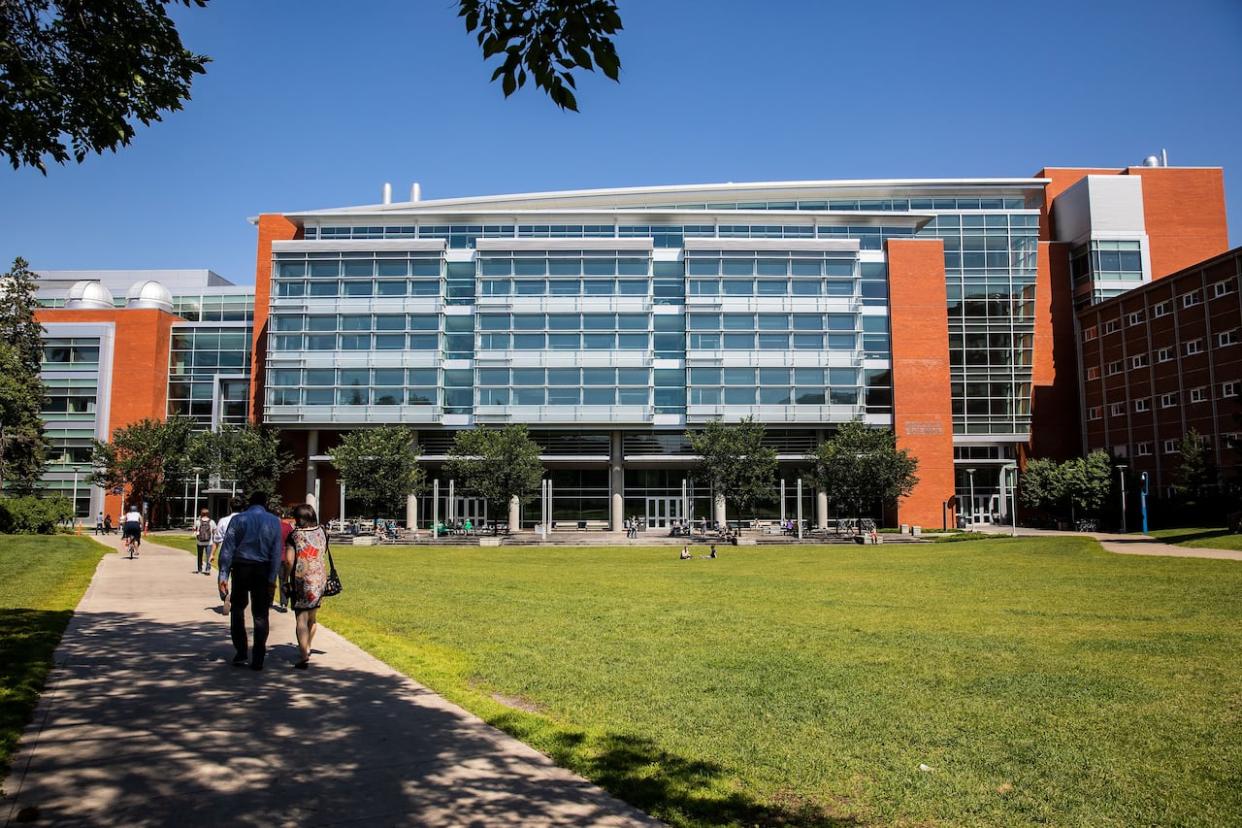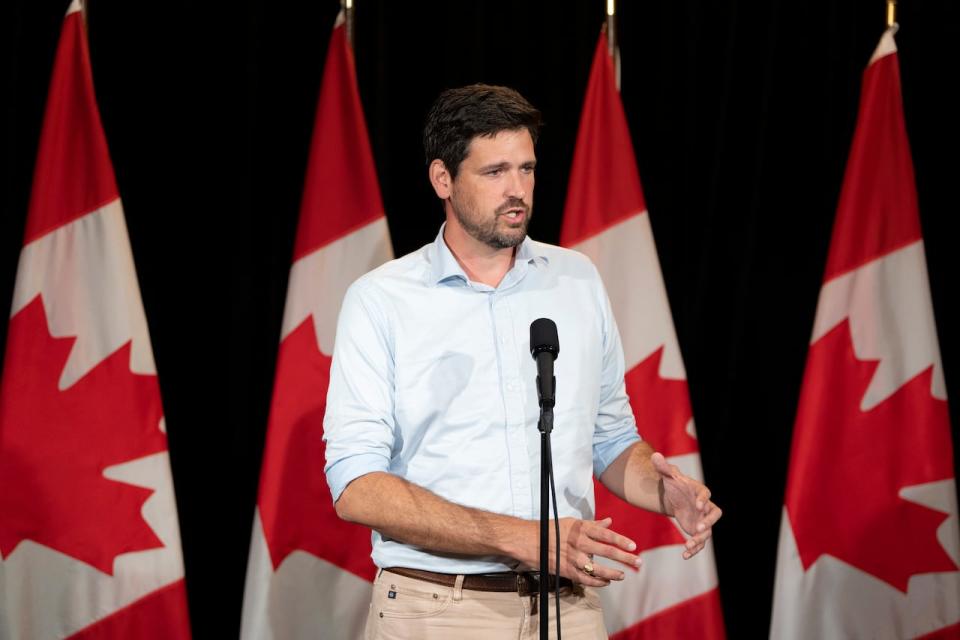University of Alberta, NAIT expect record-high admissions for international students

The University of Alberta and the Northern Alberta Institute of Technology are expecting record-high enrolment rates for international students this school year.
The U of A is set to welcome more than 44,000 students into its undergraduate and master's programs.
Once final numbers are counted in December, it's expected that more than 8,400 international students will have registered, accounting for nearly 20 per cent of the university's total enrolment.
In 2022-23, the school set a record with 44,036 students across its undergraduate and master's programs. Of the total, 8,457 were international students. In the fall of 2021, there were 8,216 international students at the U of A.
NAIT will welcome a record-high 873 international students from 56 different countries for the fall term. However, the number could change slightly over the next two weeks, according to a statement from the school.
Not far off from its enrolment figures from previous years, MacEwan University made 756 admissions offers to international students for undergraduate programs for the upcoming fall 2023 term. Of the 361 students confirmed to arrive, the majority are coming from India, Nigeria, and the Philippines.
International students represent four per cent of MacEwan's student population.
Meanwhile, student groups are working to ensure that the growing community of international students are getting the proper mental health, financial, and community support they need.

An international student from Iran, Amirali Bigleri says there are many challenges that newcomer students face when they arrive. (Nishat Chowdhury/CBC)
Amirali Bigleri, co-president of the international student association at the U of A, said they're working with the student union to offer scholarships to ease financial obligations for international students so they can divert more focus to their studies.
"It can be a little bit challenging at first to feel a sense of belonging, feeling that you are understood as a part of the community. So that's what we're trying to achieve this year with this union," said Bigleri, an international student from Iran.
Statistics Canada data on the 2019/2020 school year indicate that international students represented 11.5 per cent of university enrolments in Alberta.
Minister comment
On Monday, just before the first session of the three-day Liberal cabinet retreat, Housing, Infrastructure and Communities Minister Sean Fraser said implementing a cap on the number of international students permitted to study in Canada is one option the federal government is considering to address the current housing crunch felt across the country.
But national post-secondary groups are pushing back.
In a statement responding to Fraser's comments, Universities Canada and Colleges and Institutes Canada said a cap may provide temporary relief, but it will create long-lasting and adverse effects on these students, and exacerbate current labour shortages.

Sean Fraser, Minister of Housing, Infrastructure and Communities, speaks to reporters during the Liberal Cabinet retreat in Charlottetown, Monday, Aug. 21, 2023. (Darren Calabrese/The Canadian Press)
The organization has asked for expanded eligibility in funding programs through the National Housing Strategy to help get more housing projects off the ground.
Richard Mueller, an economics professor at the University of Lethbridge, said international students are just one piece of the housing crisis puzzle. And, a cap is going to have ripple effects throughout the economy.
"[International students] are paying higher housing prices, paying tuition that's up to five times as high as what domestic students pay, and they're trying to make ends meet," said Mueller.
Muller said a cap would be a "Band-Aid" solution to the housing problem.
Program changing educational landscape, expert says
An international student is granted permission to study in Canada based on their acceptance to a designated learning institution. After a certain amount of time, they can get a post-graduation work permit, which can lead to permanent resident status
Mueller said this approach changed the composition of the international student program and the nature of getting an education in Canada.
"Basically, their acceptance letter to a university or college comes with a PR [permanent resident] card," said Mueller. "These students are not doing this for the wrong thing by any means. The system's been incentivized this way and they're just just following the rules."

Richard Mueller says that a cap on international students is a "Band-aid" solution to the housing problem. (Nishat Chowdhury/CBC)
International students have more difficulty finding housing compared to domestic students because they don't have the same support, said Chris Beasley, the vice-president of external affairs for the University of Alberta Students' Union.
"They don't have a family friend that they can move in. They can't move back in with their parents," said Beasley. "International students are not causing the housing crisis. They're merely the most visible victims of it."


